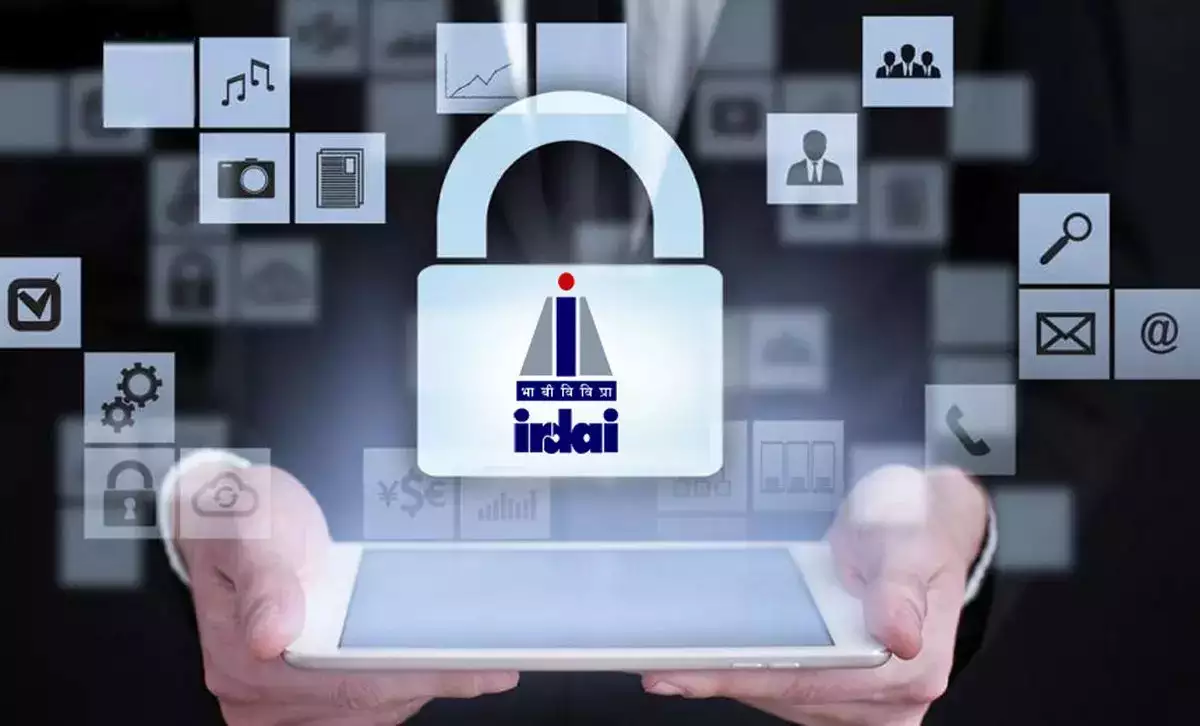Until now, the insurance policies were issued as physical documents. Most insurance policies had a long tenure, so record keeping became a problem. Even the insurance holders lost policies and ended up struggling at the time of the claim. This was a major challenge in front of the IRDAI and the Indian Government. In 2013, Honourable Finance Minister P Chidambaram took a decision which changed the dynamics of insurance record keeping. This landmark decision was the launch of the Insurance Repository System, also known as IRS.
IRS was launched to bring transparency to the insurance industry. The main objective behind this system was to improve record keeping. This step initialised the dematerialisation of the insurance policy. So, what exactly is the dematerialisation of insurance policy? Check out the answer to this question in the next section.
🤔 What is the Dematerialisation of Insurance Policy?
As mentioned earlier, insurance policies were issued in physical form until 2013. After the launch of the IRS, the insurance policies were stored in electronic form in the Insurance Repository System. Dematerialisation of insurance policies made it easy for insurance companies to maintain the record. At the same time, this initiative ensured that the documents were not lost during long periods. This also eliminated the need to print and send the insurance policy to the policyholders. Instead, the policy was emailed to the policyholders, and they could have taken the print-out of the same. At the same time, the document was maintained at the central repository. Each individual was assigned a unique ID where all policies were stored. Apart from keeping the policies, the system also held information like the claim history, nominees, beneficiary information and other KYC details.
👍 Advantages of Dematerialisation of Insurance Policy?
Below are the advantages of the dematerialisation of the insurance policy.
- No Need for Multiple KYC – With the dematerialisation of insurance policy, your KYC documents are stored online. Once the KYC is done, you won’t have to do the KYC again when you are purchasing a new policy. It saves you from the hassle of giving KYC documents and consent to the insurance provider every time. In a way, the dematerialisation of insurance policies has made things quick.
- Easy to Make Demographic Updates – If you have moved your home or if there is any demographic update, the changes can be made easily and quickly. The insurance policies on the IRS can be updated, and there is no need to get the policy reissued. This helps in maintaining valid records, and it has also helped insurance companies in reaching out to customers with ease.
- No Physical Document Required – Today, the digital copy of the insurance is valid, and there is no need to carry the physical copy of the insurance with you. This is very helpful for vehicle owners as they can maintain online records. Even for other policies, this has reduced the risk of losing documents.
- Free of Cost – The service is available free of cost. Insurance companies don’t change anything for record maintenance on IRS. This feature has enabled a higher adoption of the dematerialisation of the insurance policy. The cost is not passed on to the users.
- Reduces Risk of Record Keeping – Physical record keeping is always risky. What if the files or documents are lost? What if there is a fire on the premises? With the digitalisation of the records, this risk has been nullified, and there is no risk of losing the documents. You don’t even have to worry about the theft of documents as you can download the policy from the online portal when necessary.
- Reduces Cost of Insurance – Imagine the amount of paper that was used for printing the policy. Also, factor in the cost of couriers as the insurance companies were bound to send the policies to the policyholder. All of that is now a net save. The companies don’t have to spend on printing, record keeping and mailing the policies. So, in a way, the dematerialisation of insurance policies has brought down the operational cost for insurance companies.
- Easy Borrowing Against Policy – Lastly, the records are maintained by IRS. So, if you need a loan against an insurance policy (read life insurance), you can easily get it. The records are maintained in a central place. Moreover, centralised documentation makes the whole process very easy.
👎 Disadvantages of Dematerialisation of Insurance Policy
Below are the disadvantages of the dematerialisation of the insurance policy.
- Need to Unique ID – To dematerialise the insurance policy, you need to have an existing account or a new Unique ID. You need to ensure that you provide the correct KYC document, or the insurance provider might be unable to find your account.
- Understanding of Technology – Because of the dematerialisation of insurance policies, companies started sending insurance policies in digital format. This is an excellent initiative from an environmental perspective, but at the same time, it also has certain implications for the elderly population of India. People not comfortable with the use of technology face challenges in downloading insurance policies. Some people don’t have email IDs, and dematerialisation poses a different challenge for them.
Dematerialisation of Insurance Frequently Asked Questions
Q1. What Is The Actual Process For Dematerializing An Insurance Policy?
Ans: Dematerializing an insurance policy is basically just converting your physical policy documents into a digital format. You simply hand over your physical policy documents to the insurance company or a depository participant (DP), and they take care of the rest! The DP will convert your documents into an electronic form and store them in a demat account. Easy peasy!
Q2. Is There Any Cost Involved To The Policyholder For Dematerialization?
Ans: The process of dematerialization does come with some charges, like DP fees, custodian charges, and government taxes. But don’t worry, these charges are usually pretty reasonable
Q3. Should I Dematerialization my Insurance Policy?
Ans: You don’t have to dematerialise your insurance policy. This is a step for the insurance service provider. If you are buying insurance for the first time, they will create a unique ID for you and dematerialise the insurance policy for record keeping. If you already have insurance, a unique ID is already generated. In such a case, the insurer will upload the newly purchased insurance to the IRS. The Government monitors the system closely, making the whole system very efficient. So, please do not worry about the dematerialisation of the insurance policy, and if you still have any questions, you can reach out to the insurance service provider.
Q4. How Does The Dematerialization Process Affect Insurance Agents And Brokers?
Ans: As an insurance agent and broker, you can still sell insurance policies and earn commissions just like before. The only difference is that the policy document is now in digital form, but the sales and commission process remains the same. So keep selling those policies and making your clients happy!
Final Verdict
Dematerialisation of insurance policy was seen as a landmark decision by the IRDAI, Insurance Service Providers and the people of India. This has undoubtedly made record-keeping very easy and has also helped people massively. Today, you don’t have to worry about losing the original copy of insurance as the electronic copy is equally valid. With so many benefits of the dematerialisation of insurance policies, this is one of the most welcoming steps for the insurance landscape in India.














